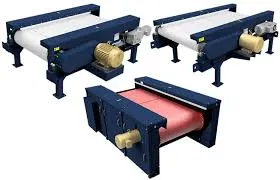
10 月 . 11, 2024 09:54 Back to list
Understanding the Factors Influencing Industrial Shredding Machine Prices
In an era of increasing emphasis on waste reduction and recycling, industrial shredding machines have become essential in various sectors, from manufacturing to waste management. These machines help businesses shred, crush, and process materials, enabling efficient recycling and waste disposal. As industries continue to expand, the demand for shredding machines rises, leading to a significant variation in prices. This article delves into the key factors influencing industrial shredding machine prices, providing valuable insights for businesses considering a purchase.
1. Type of Shredding Machine
One of the primary factors affecting the price of industrial shredding machines is the type of machine being considered. There are various types of shredders, including single-shaft, double-shaft, and granulators, each designed for different applications. For instance, single-shaft shredders are typically less expensive and ideal for lighter materials, while double-shaft shredders, known for their robustness and efficiency in handling heavier, more complex materials, tend to come with a higher price tag. Understanding the specific needs of your business will help determine which type of machine is most suitable and budget-friendly.
2. Capacity and Output
The capacity of an industrial shredding machine—measured in terms of how much material it can process per hour—plays a significant role in determining its price. Higher-capacity machines are designed for larger operations and are generally more costly due to the advanced technology and materials used in their construction. Businesses must assess their volume of material to be processed when selecting a machine, as this will directly impact both cost and productivity.
3. Material Construction and Durability
Durability is a critical factor in the longevity and effectiveness of any industrial equipment, including shredders. Machines made from high-quality, durable materials may have a higher initial price but often prove to be more cost-effective in the long run due to reduced maintenance and replacement costs. Manufacturers that provide warranties and extensive service options on their machines typically price them higher because they offer added assurance of quality and reliability.

4. Technology and Features
Modern shredding machines often come equipped with advanced features such as automatic feed systems, noise reduction technology, and digital controls. These innovations can significantly enhance efficiency and ease of operation, but they can also increase the cost of the machine. Businesses should weigh the value of these features against their operational needs to determine if the investment is justified.
5. Brand Reputation and Manufacturer
The manufacturer’s reputation can also greatly influence the price of industrial shredding machines. Established brands known for their reliability and quality may charge a premium due to their proven track record in the industry. On the other hand, lesser-known manufacturers may offer lower prices, but buyers should conduct thorough research to ensure that these machines meet industry standards and performance expectations.
6. Market Trends and Economic Factors
Lastly, market trends and economic conditions can affect the pricing of industrial shredding machines. Supply chain disruptions, material shortages, or increased demand in specific industries can lead to fluctuating prices. Businesses should stay informed about market conditions to time their purchases effectively and potentially save costs.
Conclusion
Investing in an industrial shredding machine is a significant decision that can impact operational efficiency and waste management strategies. Understanding the various factors influencing prices—such as type, capacity, construction material, technological features, brand reputation, and market trends—can empower businesses to make informed choices tailored to their specific needs and budgets. By doing so, companies can enhance their sustainability efforts, streamline operations, and ultimately contribute to a more environmentally friendly future.
Latest news
Unveiling the Power of Eddy Current Separator
NewsSep.25,2024
Transform Your Home Recyclin:home metal shredder
NewsSep.25,2024
The Future of Waste Management with Recycling Line Picker
NewsSep.25,2024
The Benefits of a Metal Recycling Plant
NewsSep.25,2024
Revolutionize Material Separation with Onwang Technology
NewsSep.25,2024
Innovative Waste Management: Unveiling the MSW Sorting Plant
NewsSep.25,2024